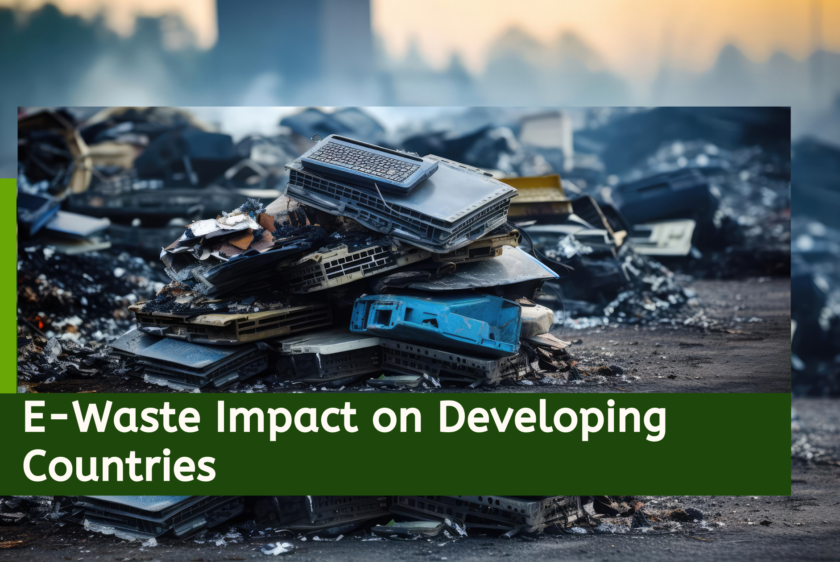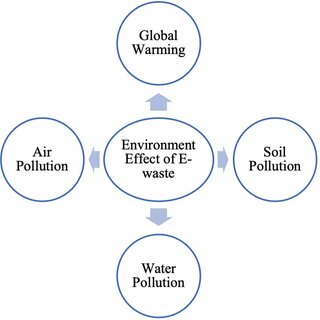
Impact of E-Waste on Developing Countries
Electronic waste, or e-waste, is a growing global problem that disproportionately affects developing countries. As developed nations continually upgrade to the latest technologies, older electronics are discarded, often ending up in developing countries through legal and illegal means. This practice shifts the burden of waste management and exposes these nations to severe environmental and health risks. This blog explores the impact of e-waste on these countries, highlighting the environmental, health, and socio-economic consequences, as well as potential solutions to mitigate these effects.
Sources of Electronic Waste
E-waste originates from a variety of sources, including:
Consumer Electronics: Mobile phones, laptops, tablets, and televisions.
Household Appliances: Refrigerators, air conditioners, washing machines, and microwaves.
Office Equipment: Computers, printers, copiers, and fax machines.
Industrial Tools: Drills, saws, and other electronic equipment used in manufacturing.
Medical Devices: Diagnostic and monitoring devices, often containing hazardous materials.
These electronic items contain hazardous materials like lead, mercury, and cadmium, which can cause significant environmental damage if not properlyhttps://reecollabb.com/wp-admin/edit.php?post_type=custom-css-js managed.
Why Developing Countries Are Affected
Developing countries are significantly impacted by e-waste for several reasons:
Economic Factors: Developed countries find it cheaper to export e-waste rather than process it domestically. The lower labor costs and lax environmental regulations in developing countries make them attractive destinations.
Regulatory Gaps: Many developing countries lack stringent laws to control the import and handling of e-waste. This regulatory vacuum allows the influx of large quantities of electronic waste.
Informal Recycling: A significant portion of e-waste processing in developing countries happens in the informal sector, where workers, often without proper protection, manually dismantle electronics to extract valuable materials. This leads to severe health and environmental consequences due to exposure to toxic substances and improper handling.
Insufficient Infrastructure: Developing countries lack the necessary infrastructure for proper e-waste management. Limited access to modern recycling facilities and safe disposal methods means that e-waste is often handled in ways that pose significant health and environmental risks.
Global Trade Practices: International loopholes and inadequate tracking of e-waste shipments facilitate the flow of e-waste to underdeveloped countries under the guise of second-hand goods.
E-waste Implications For Developing Countries
Environmental Impact

Soil and Water Contamination: E-waste contains chemicals like lead, mercury, cadmium, and brominated flame retardants. When improperly disposed of, these toxic materials can dissolve into the soil and water systems, contaminating local ecosystems. Studies have shown that regions in Ghana, Nigeria, and India, where e-waste recycling is prevalent, have alarming levels of soil and water pollution.
Air Pollution: Informal recycling operations often involve burning electronic components to extract valuable metals like copper and gold. This process releases dangerous pollutants into the atmosphere, including dioxins and furans, contributing to air quality degradation and respiratory issues among local populations.
Biodiversity Loss: Soil and water contamination directly impacts plant and animal life. Toxic substances disrupt ecosystems, leading to reduced biodiversity and the loss of species vital for ecological balance.
Health Impact
Direct Exposure: Workers in informal e-waste recycling facilities are exposed to hazardous chemicals without adequate protective measures. Prolonged exposure can lead to severe health problems, including respiratory problems, neurological damage, and cancers. A study published in the Journal of Environmental Health Perspectives highlighted the elevated lead levels in the blood of children living near e-waste recycling sites in China.
Indirect Exposure: The local population faces indirect health risks, particularly in areas where e-waste is improperly managed. Contaminated water and food sources introduce toxic substances into the human body, causing various chronic health conditions. Pregnant women and children are particularly vulnerable, with increased risks of birth defects and developmental disorders.
Economic Impact
Informal Economy: While e-waste recycling provides income opportunities for many in developing countries, the informal nature often leads to exploitation and poor working conditions. Workers, including children, labor in hazardous environments for meager wages, perpetuating cycles of poverty and health disparities.
Healthcare Costs: The health issues arising from exposure to toxic e-waste compounds lead to increased healthcare costs. Developing countries, already strained with limited healthcare resources, struggle to address the medical needs of those affected by e-waste-related illnesses.
Solutions To Minimize E-waste Impact
1. Strengthening International Regulations: Enforcing stricter regulations on e-waste exports from developed to developing countries can help mitigate the problem. International agreements like the Basel Convention aim to control the cross-boundary movement of hazardous wastes and their disposal.
2. Developing Local Infrastructure: Investing in proper e-waste management infrastructure in developing countries is crucial for establishing formal recycling facilities and ensuring safe and environmentally sound disposal methods.
3. Promoting Public Awareness: Educating the public about the dangers of e-waste and the significance of proper disposal can lead to more responsible consumer behavior and increased pressure on governments and companies to take action.
4. Encouraging Producer Responsibility: Implementing policies that hold manufacturers accountable for the complete lifecycle of their products can reduce e-waste. It includes designing products for longer lifespans and facilitating recycling and proper disposal.
Choose REECOLLABB for Responsible E-Waste Management
The impact of e-waste on developing countries is a critical issue that demands immediate and comprehensive action. As individuals and businesses, we can encourage responsible electronic waste management. Choosing a certified recycler like REECOLLABB is a step in the right direction. We offer certified and compliant services, advanced recycling facilities, and a solid environmental sustainability and data security commitment. By opting for us, you ensure that your e-waste is managed in an eco-friendly manner, helping to mitigate the harmful effects of e-waste on vulnerable communities and the planet. Make the responsible choice today and partner with us for all your e-waste recycling needs.
Read Our More Blogs:
E-Waste Management in Developed vs. Developing Countries
How Does E-Waste Contribute to Global Warming?







